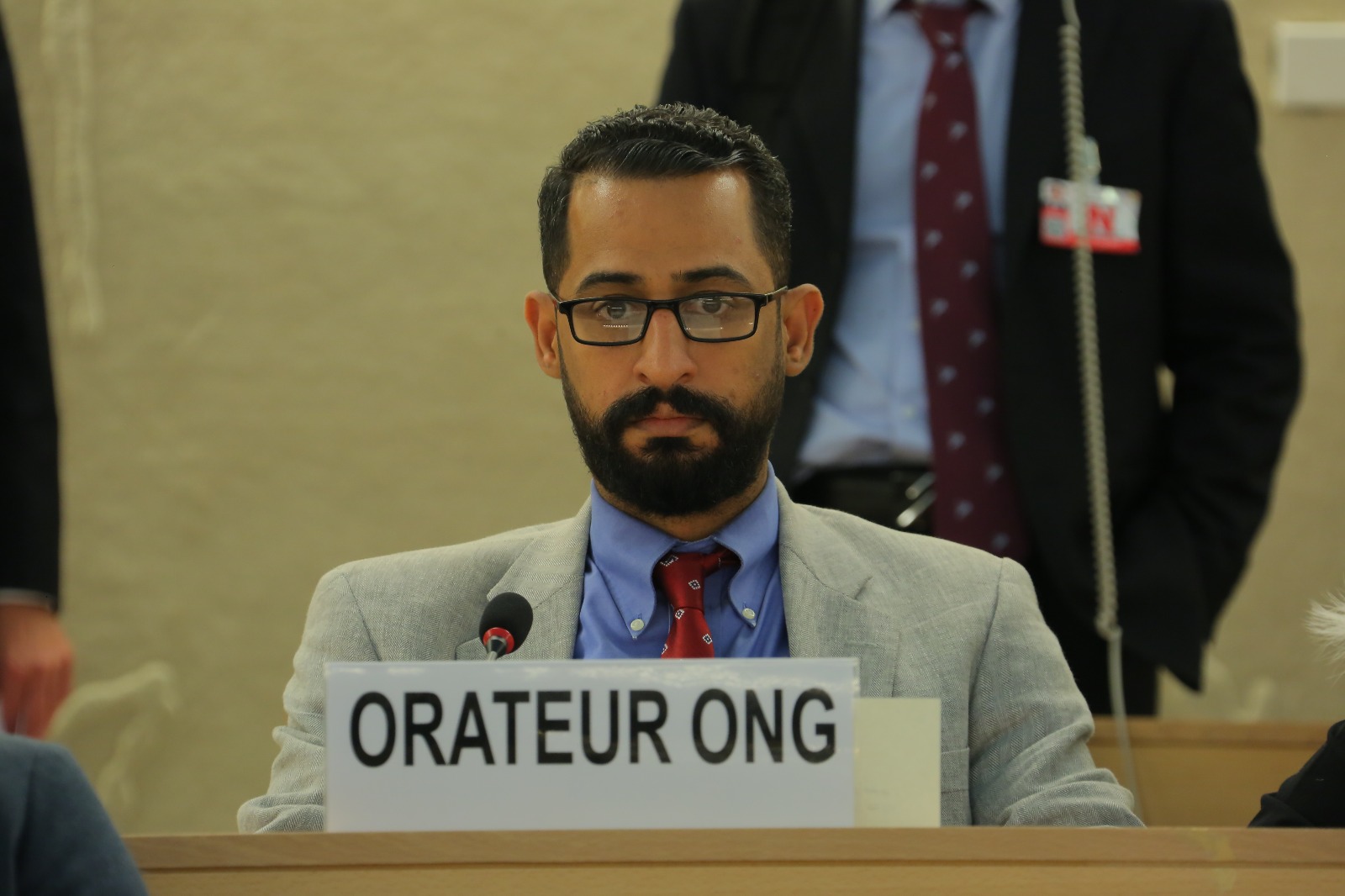On 20 September at the 36th session of the Human Rights Council, Yusuf al-Hoori delivered an oral intervention on behalf of ADHRB during the Interactive Dialogue with the Special Rapporteur on Indigenous Peoples. In his intervention, al-Hoori drew attention to the longstanding issue of discrimination against Bahrain’s indigenous majority, Baharna population. He specifically drew attention to their marginalization across all levels of Bahraini society and the destruction of their cultural and religious heritage by Bahraini authorities. Please continue reading for the full text of his intervention, or click here for a PDF.
Mr. President,
Alsalam Foundation, together with Americans for Democracy & Human Rights in Bahrain, would like to thank the Special Rapporteur on Indigenous Peoples for her report. We share the Rapporteur’s concerns over the challenges that continue to be faced by the world’s indigenous peoples.
In this context, we would like to draw attention to longstanding forms of discrimination against the Baharna, Bahrain’s native ethnoreligious Shia Muslim community. Though the Baharna are the longest continuous inhabitants of Bahrain, they have been consistently marginalized across all sectors of society – a trend that has intensified in the wake of the government’s violent suppression of the kingdom’s 2011 pro-democracy uprising. For example, at least 53 historic Baharna and Shia places of worship have been destroyed or damaged in Bahrain since 2011, preventing the community from accessing adequate facilities to practice their faith and cultural heritage. The government has additionally worked to exclude the Baharna culture and Shia faith from the country’s official history and educational curricula by prioritizing the Maliki school of Sunni Islam, while denigrating Shia religious practices and beliefs. Over the last year, the authorities have also directly targeted the Shia clerical leadership, judicially harassing more than 75 clerics.
Similarly, the government has disproportionately revoked the citizenship of individuals from the Baharna and the wider Shia community. Since 2012, the government has arbitrarily denaturalized more than 400 people, the vast majority of which are Shia activists, journalists, opposition figures, and religious leaders. Many have been made stateless, denying them accessing basic social services like healthcare and leaving them at imminent risk of deportation.
We therefore ask the Rapporteur: “How does your mandate recommend that the rights of indigenous majorities be protected from discrimination and abuse?”
Thank you.
Photo by Moosa Mohammed





